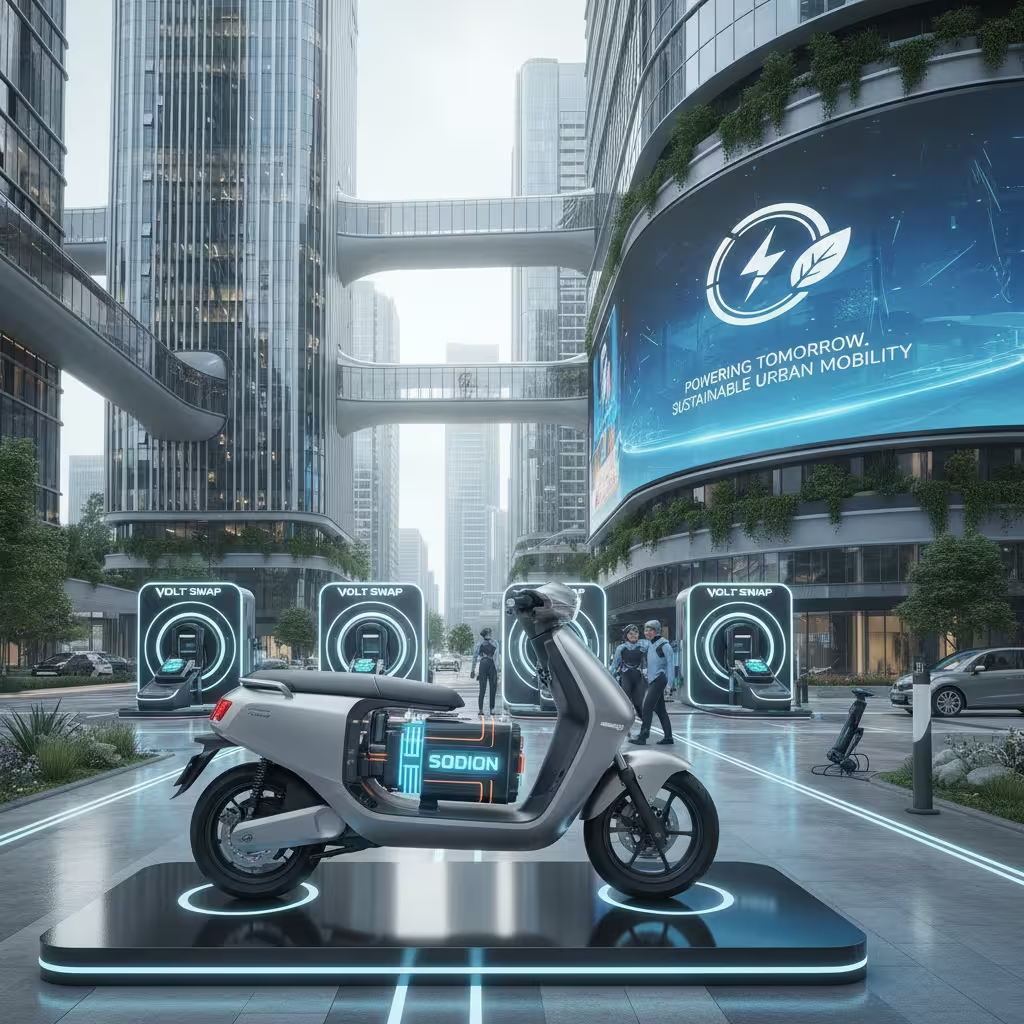
China Accelerates Innovation in Sodium-Ion Batteries and Battery Swap Systems for Electric Scooters
China is rapidly advancing its electric mobility landscape, driven by breakthroughs in sodium-ion battery technology and the expansion of battery swap systems for electric two-wheelers. As the largest electric scooter market globally, China is...
Summary
China is rapidly advancing its electric mobility landscape, driven by breakthroughs in sodium-ion battery technology and the expansion of battery swap systems for electric two-wheelers. As the largest electric scooter market globally, China is playing a pivotal role in developing energy storage solutions that promise to reshape urban transportation and beyond.
Sodium-Ion Battery Electric Scooters: A New Chapter in Energy Storage
Traditional electric two-wheelers have predominantly relied on lead-acid batteries due to their low cost, and increasingly on lithium-ion batteries for better performance. However, sodium-ion batteries are emerging as a compelling alternative, offering distinct advantages that align with the needs of mass-produced electric scooters.
Sodium-ion batteries leverage abundant and inexpensive sodium resources, enabling lower production costs and alleviating supply chain risks associated with lithium. Compared to lithium-ion counterparts, they also offer enhanced safety, with less propensity for overheating or combustion. While historically limited by lower energy density, recent advances in materials science and manufacturing have significantly improved their capacity and lifespan.
Yadea, a leading manufacturer in the China electric scooter market, has begun incorporating sodium-ion batteries into selected electric scooter models. Collaborations with research entities like the Starting Point Research Institute in Shenzhen have accelerated this transition. These partnerships focus on optimizing battery chemistry for improved energy density, faster charging, and durability tailored to the demands of electric two-wheelers.
Battery Swap Stations: Supporting Electric Two-Wheelers at Scale
Alongside battery innovation, infrastructure development is critical for widespread adoption. Battery swap systems enable riders to exchange depleted batteries for fully charged ones at conveniently located swap stations, eliminating long charging waits and increasing vehicle uptime.
China's electric mobility ecosystem is actively expanding battery swap stations nationwide. JAC Motors and Volkswagen have notably invested in building fast-charging and battery swap networks, recognizing their potential to enhance user experience and boost electric scooter usage.
These stations are designed to support mass production and deployment of swap-capable electric scooters, particularly models equipped with sodium-ion batteries. The rapid charging compatibility inherent to sodium-ion technology complements the swap system, providing a seamless energy replenishment experience.
Challenges and Outlook
While sodium-ion batteries present significant advantages over lead-acid and lithium-ion batteries in terms of cost, safety, and resource availability, challenges remain. Their energy density, though improving, still trails high-end lithium-ion cells, limiting range for some applications. Further, scaling production to meet growing demand requires substantial investment and refinement of manufacturing processes.
Nevertheless, with companies like Yadea pioneering integration, and support from research institutes and automotive giants such as Volkswagen and JAC, the trajectory is promising. The combination of improved battery technology and robust battery swap infrastructure positions China to maintain its leadership in electric two-wheelers and energy storage solutions.
Conclusion
China's dynamic advancements in sodium-ion batteries and battery swap systems are redefining the electric scooter market and broader electric mobility sector. By addressing cost, safety, and charging challenges, these innovations pave the way for more sustainable and user-friendly electric transportation options. As the nation continues to invest in mass production and large-scale infrastructure, the proliferation of sodium-ion battery electric scooters is set to accelerate, shaping the future of urban mobility and energy storage.
Key Entities
Company: Yadea is one of China's leading manufacturers of electric two-wheelers, specializing in electric scooters and bicycles. The company has significantly contributed to the growth of the electric vehicle market by developing advanced battery technologies and expanding its global presence.
Company: JAC Motors is a major Chinese automobile manufacturer actively expanding its electric vehicle lineup to compete in China's growing EV market. The company collaborates with battery suppliers to integrate advanced lithium-ion technology into its electric models.
Company: Volkswagen has significantly expanded its presence in China’s electric vehicle market by partnering with local companies to develop and produce EVs tailored for Chinese consumers. The company is also investing in battery technology and supply chains within China to support its growing electric vehicle production.
City: Shenzhen is a major hub for China’s electric vehicle industry, home to several leading EV manufacturers and battery technology firms. The city plays a crucial role in the development and innovation of lithium-ion batteries, supplying components for both domestic and global markets.
Company: Starting Point Research Institute is a Chinese organization specializing in market analysis and industry research for electric vehicles and battery technologies. It provides data-driven insights that support strategic decisions in China’s rapidly evolving clean energy transportation sector.
Technology